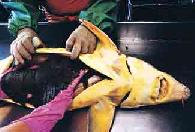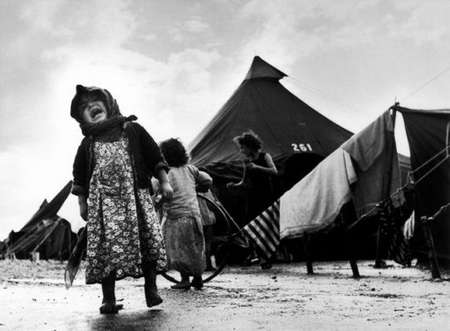 Caviar exports have been blocked under the International convention due to the depletion in the stocks of sturgeon fish. The nations that are restricted to export sturgeons are Azerbaijan, Bulgaria, China, Iran, Kazakhstan, Romania, Russia, Serbia and Montenegro, Turkmenistan and Ukraine. The exporting nations have to ensure that the exports will not cause an extinction of the sturgeon fish. However, the retailers have to depend on the farm-fish sturgeon and the restaurateurs feel that farm-fish is tastier and has a better quality than wild sturgeon. Not only exports but the imports are also banned.
Caviar exports have been blocked under the International convention due to the depletion in the stocks of sturgeon fish. The nations that are restricted to export sturgeons are Azerbaijan, Bulgaria, China, Iran, Kazakhstan, Romania, Russia, Serbia and Montenegro, Turkmenistan and Ukraine. The exporting nations have to ensure that the exports will not cause an extinction of the sturgeon fish. However, the retailers have to depend on the farm-fish sturgeon and the restaurateurs feel that farm-fish is tastier and has a better quality than wild sturgeon. Not only exports but the imports are also banned.
This measure to a certain extent is right in its own sight as it is aimed to put an end to the illegal marketing of caviar, excessive fishing and putting a check on the sea routes that have been blocked, so as to prevent the spawning routes of the fish. The sturgeon fish eggs have underwent illegal trade from many years. The illegal trading of caviar has literally crippled the Russian industry. The International convention had banned the caviar exports since last year and the Russian industry had decided to have a monopoly over the caviar industry thus raising price of caviar. A kilogram of legal black caviar costs up to US$700, while the present black caviar is US$150. The bans would facilitate the preservation of sturgeon for the future production of caviar as for every 1000 tones of licensed sturgeon catch, 12-14 tones of illegal sturgeon catch is placed in the market. Huge catch reduces the sturgeon stock and thereby, diminishing the production of caviar in future
The restaurants cannot make their loss so they serve these highly prized foods, by tapping the eggs from the farm fish.
Read More: Channel News Asia




